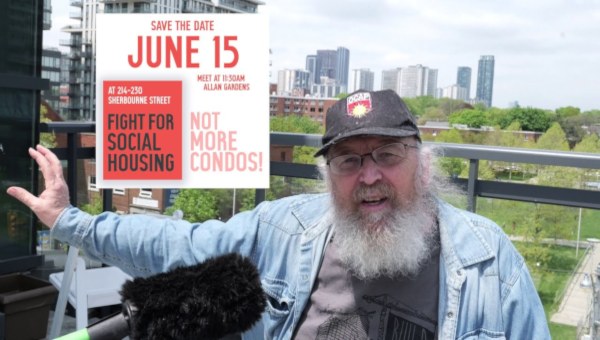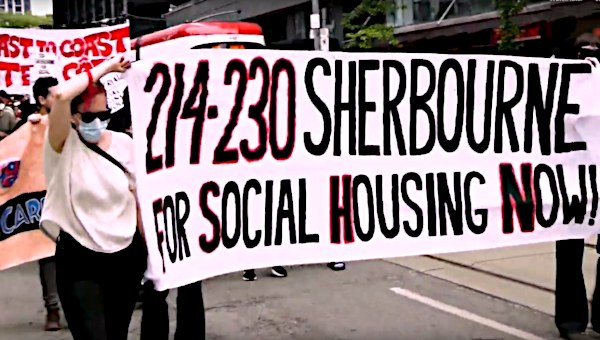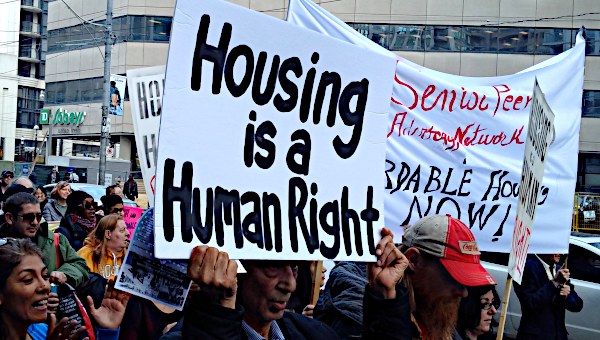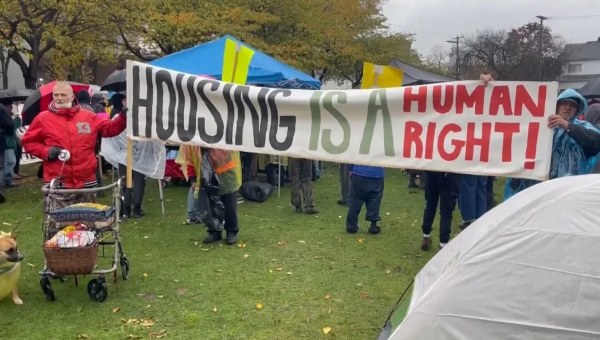The Unhoused: Scapegoating Politics and Housing Struggles
From Anna Seghers, Comrades (translated by Todd Cronan):
Steiner (the intellectual) talking to Bató (a Hungarian communist) in 1919:
“Yes, people like you are fine! Join the party and then you will have what people in general lack. Connection, security. A simple answer… A simple answer to all questions. – But everything living in the world has a hundred sides, a hundred possibilities, a hundred solutions, and man only has one life.”
“A hundred? I think only two.”
Steiner wanted to say something back… but he was already overcome by paralysis, reluctance, and fatigue…
City of Grants Pass v. Johnson1 punctuates where decades of “don’t let the perfect be the enemy of the good” liberal advocacy have led us, in this instance via accommodating the separation of homelessness as an issue from its roots in publicly subsidized real estate profiteering and the proliferation of low-wage employment and underemployment. This accommodation has underwritten a corollary retreat from demands for public provision of non-commodified housing for people in need. Instead, concern with ameliorating people’s suffering in whatever ways possible understandably has encouraged ceding that important ground to secure palliative interventions more palatable to governing elites.
But, as a price of gaining support for helping homeless people as individuals, this compromise accepts homelessness as a fact of life or an ecological condition to which individuals can succumb. Displacing a structural view of homelessness as an expression of capitalist class contradictions for one tied to individual trauma and therapeutic intervention abetted anchoring the center of gravity of debate about homelessness in just-so “it’s more complicated than that” narratives about why individuals or supposed categories of individuals are homeless (Turns out that many/most/therefore all of them really don’t want to live indoors! Who’d have known!?) and how, therefore, providing housing isn’t really the answer to homelessness.
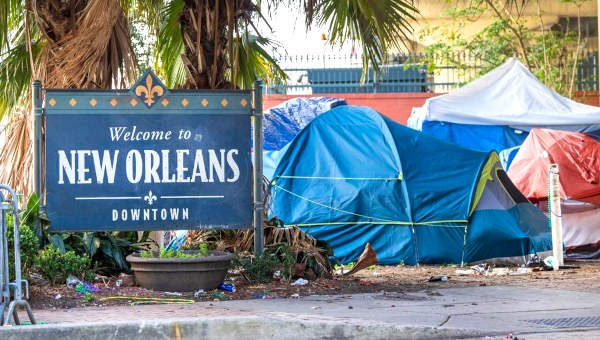
Of course, homelessness is associated with a variety of physical and mental health problems, including addiction or chronic substance abuse; therefore, any serious effort to address the issue must include provision of necessary supportive services. But I can’t assert strongly enough that the debate over whether homelessness most meaningfully derives from those conditions or is their source, as should seem at least equally likely to anyone with the slightest touch of sociological imagination or human empathy, is an obscene misdirection of the sort that would consign the social scientists who propagate it – led by the economists and psychologists – to the deepest rungs of Hell. We absolutely should refuse to indulge it. People are homeless because they don’t have access to adequate shelter – period. That’s tautologically true; it’s what it literally means to be homeless. To that extent, any policy response to it must begin with addressing the definitive condition.
What we get instead, in typical liberalspeak, is reifying them as “the homeless,” the equivalent of an ethnic interest group, which sharpens attention onto what kinds of services – other than housing, of course – their ‘community’ needs as well as absurdities like stressing the importance of respecting them by making up neologisms that supposedly remove the stigma supposedly attached to the word “homeless.” Reifying social phenomena and then concocting rhetorical gestures intended to destigmatize the reifications thus produced is one of the practices at which liberal intellectuals excel, along with making class and political economy disappear.
While experienced by individuals, homelessness is a problem that originates in the coincidence of a publicly supported political economy of privately appropriated real estate development and speculation that push housing costs up, on the one side, and expansion of low-wage employment and underemployment, on the other. Decades of debates and policies that sidestep that reality have generated the circumstance in which practically no one can imagine the fundamental connection between homelessness and labor and real estate markets, even as they simultaneously live with the pressure of escalating housing costs in their own lives. And non-homeless people therefore experience not growth of homelessness as the logical outcome of those market processes but growth of the homeless population as a problem to be managed.
And the combination of 1) decades of insistence from elites and their academic guide dogs that the roots of homelessness are behavioral and not most significantly connected to market forces, 2) even liberal local governing regimes’ insistence that intervention in housing markets (i.e., other than to underwrite and subsidize rent-intensifying development and speculation) is unthinkable, and 3) bipartisan sanctification of property rights above social needs means that people who are less housing-insecure ‘naturally’ experience the homeless population’s increasing visibility along a continuum that slides back and forth between inconvenience/aesthetic displeasure, violation of the presumed (homeowners’) right to insulate oneself from exposure to distressing or “sketchy” interlopers, and potential threat to safety. Especially in this moment of generally increasing insecurity and “destruction of social generosity,” we have conditions ripe for those “for their own good” initiatives that remove the blighted and blighting population to somewhere out of sight. We all know how that can play out.
Homelessness has intensified steadily all over the country, and, as with the insane proliferation of gun violence, because the most obvious corrective responses are off limits ideologically, officials respond mainly with bromides and measures punishing people who embody the problem, and even those who would attempt to alleviate their burden can be brought to accept punitive measures as the best realistic possibility for all, including the victims. Restrictions on feeding homeless people, or “food sharing,” have been around since well before COVID but have risen in public awareness more recently as homelessness has become more visible. Last July, three New Orleans city councilors – all black, but does anyone really believe anymore that that means anything? – floated a copycat version of Houston’s odious don’t feed the homeless ordinance for New Orleans. The Council tabled their version of the ordinance after considerable public criticism.
Eugene Green, one of the three sponsors of the New Orleans ordinance, in his non-response to critics on the Nextdoor platform, referred, oh so carefully and respectfully, to “those who are unhoused” while defending the clearly punitive proposal as not discriminatory but intended to address a “public health concern.” It is also instructive that he attempted to turn around criticism of elected officials’ failure to take up any of a panoply of measures that could prevent homelessness to catechize critics about volunteering because “Volunteers motivated by certain causes play a much more important role at times than does government.” I assume he meant this only as a knee-jerk comeback; even so, it’s significant that he didn’t recognize that his puerile move admits abdication of his responsibility as an elected official to promote the general welfare of New Orleanians.
Of course, similarly punitive, fundamentally racializing interventions have been couched partly in a language of public health concern since the field’s Victorian origins, up to and including eugenicists’ racial hygiene campaigns and the Nazis’ original euthanasia program. Suppressing people “for their own good,” moreover, is a trope as old as the ruling classes’ needs to manage hegemony – just think of John C. Calhoun’s felicitous discovery that slavery was indeed a “positive good” for all concerned.
The history of another of the sponsors connects all the dots. Oliver Thomas, who currently represents the blackest of the city’s five council districts, threw himself into the fight against the homeless scourge in a “hands-on” way, personally rousting miscreants from a key intersection in his district. In an earlier electoral career, Thomas, six months after Hurricane Katrina, in response to protests that displaced poor people were not being helped to return to the city, complained that government agencies and programs had “pampered” the black poor and infamously declared, “We don’t need soap opera watchers now.”
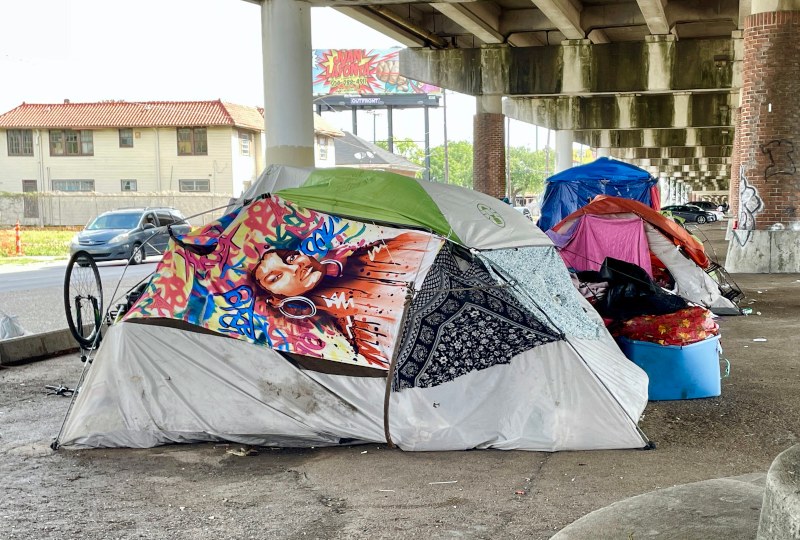
Prior to Katrina, Thomas represented one of the most racially mixed Council districts, which included in close proximity the St. Thomas low-income housing project and the toney Lower Garden District, that encompassed the rapidly upscaling Coliseum Square area. Like his predecessor in that seat (also black), Thomas had been centrally instrumental in the long-term campaign to cleanse the district of the St. Thomas project, which succeeded on his watch. And razing St. Thomas, as well as subsequent demolition of all the city’s remaining low-income housing projects after Katrina and other publicly supported neighborhood upgrading initiatives, contributed to the city’s ongoing affordable housing crisis, which, despite the plethora of victim-blaming just-so stories, is the foundation of homelessness.
Perhaps conveniently, the “vagrants” Thomas accosts at that intersection in a predominantly black, relatively affluent neighborhood are white. As he objects repeatedly to their presence on “public property,” one of them asks “We’re not the public?”
The substantive answer from Thomas and his co-sponsors, and from an alarming number of others around the country, both in government and not, is a resounding, “No!” This construction and demonization of homeless people is textbook scapegoating politics. We’ve seen it many times before directed at many other populations, and each instance seems to pose a uniquely perilous threat; so, no lessons are ever learned. Reprehensible as this assault on the most vulnerable people in the society is, what’s even more disturbing is that it’s now an element of a strategically deployed campaign by Trumpists and other reactionary political interests to foment an appearance of chaos in the society in order to set the stage for authoritarian rule and elimination of all social protections we’ve won during the last hundred years or more. Our only hope for avoiding that nightmarish outcome is to expose it for what it is – a right-wing capitalist class plot – and try to organize among the broad mass of working people to counter it. •
Endnotes
- The city of Grants Pass in southern Oregon has a population of approximately 38,000, and of that population, somewhere between 50 and 600 persons are unhoused. Whatever the exact number of unhoused persons, however, it exceeds the number of available shelter beds, requiring that at least some of them sleep on the streets or in parks. However, several provisions of the Grants Pass Municipal Code prohibit them from doing so. For more information, see oyez.org.


